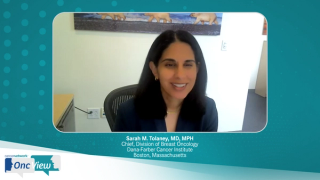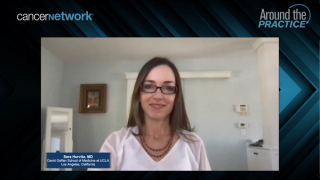
Breast Cancer
Latest News

Improved Survival Benefit With the Use of Circulating Tumor Count Application in First-Line Metastatic Breast Cancer
Latest Videos

CME Content
More News

Patients with estrogen receptor–positive, HER2-negative metastatic breast cancer did not derive further benefit when palbociclib was added to fulvestrant.
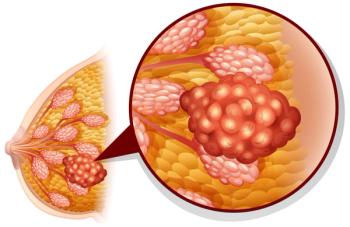
Patients with ER-positive/HER2-negative metastatic breast cancer had improved progression-free survival when treated with elacestrant compared with standard of endocrine therapy.

ARV-471 monetherapy showed clinical benefit in an expansion cohort of patients with locally advanced or metastatic breast cancer, according to data from the VERITAC trial.

Treatment with a range of camizestrant monotherapy doses resulted in a survival benefit compared with fulvestrant in a post-menopausal patient population diagnosed with estrogen receptor–positive, HER2-negative advanced breast cancer.

Results from the phase 3 CAPItello-291 trial indicated that the combination of capivasertib plus fulvestrant produced improved progression-free survival in patients who have hormone-receptor–positive/HER2-negative advanced breast cancer.

Joyce O’Shaughnessy, MD, starts a discussion on maintenance therapy with trastuzumab deruxtecan in patient with HER2+ mBC.

Heather McArthur, MD, presents the case of a 69-year-old woman with stage II HER2+ mBC for discussion.
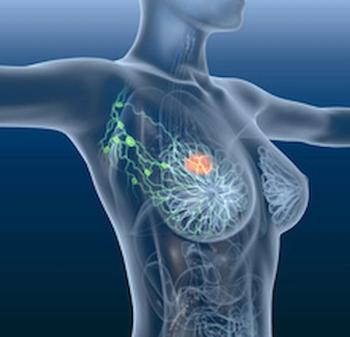
Data from the phase 2 TRIO-US B-12 TALENT trial indicate that fam-trastuzumab deruxtecan-nkxi in the neoadjuvant setting with or without endocrine therapy could be beneficial for patients with hormone receptor–positive, HER2-low breast cancer.

Yoga and conventional exercises also demonstrated long-term improvement in quality of life during treatment for non-metastatic breast cancer, according to results presented at the 2022 San Antonio Breast Cancer Symposium.

Experts believe that use of the Breast Cancer Index test in patients with early-stage, hormone receptor–positive breast cancer who are undergoing treatment with endocrine therapy may help to identify those who could be good candidates for the addition of ovarian function suppression.

The phase RIGHT Choice trial yield a 46% reduction in disease progression when ribociclib was added to endocrine therapy for patients with pre/perimenopausal hormone-receptor–positive/HER2-negative advanced breast cancer.

A racial disparity was determined when the tumor microenvironment of metastasis doorway density was found to be higher in Black women vs White women.
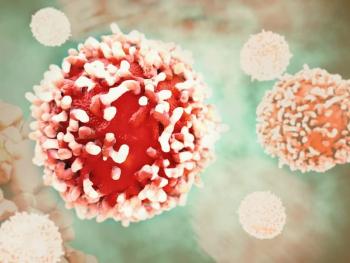
Non-Hispanic Black patients with HR+ breast cancer experienced worse overall outcomes compared with other patient subgroups despite similar recurrence scores, according to a recent analysis of the phase 3 RxPONDER trial.
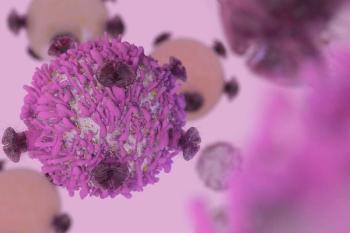
Everolimus failed to improve survival outcomes when added to adjuvant endocrine therapy in patients with HR+/HER2- breast cancer, according to findings from the phase 3 SWOG S1207 trial.

The prespecified overall survival analysis of the phase 3 monarchE trial when abemaciclib was added to endocrine therapy in patients with hormone receptor–positive, HER2-negative, node-positive early breast cancer.
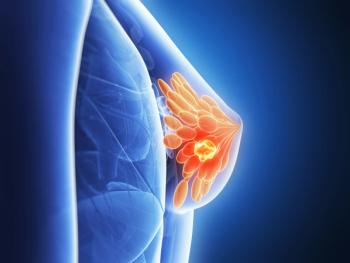
Pre- and postmenopausal women with breast cancer may experience cognitive impairment with chemotherapy and endocrine therapy, which may return to baseline after 36 months.
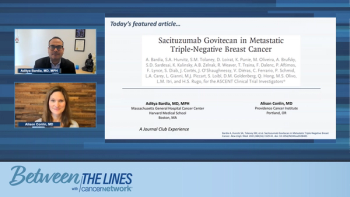
Expert oncologists highlight remaining unmet needs in the setting of metastatic triple-negative breast cancer and look toward future evolutions in care.
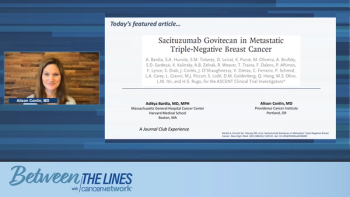
Centering discussion on sacituzumab govitecan use in metastatic triple-negative breast cancer, expert oncologists reflect on results from the phase 3 ASCENT study.
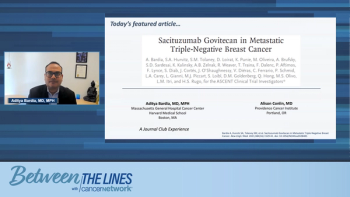
Centering discussion on sacituzumab govitecan use in metastatic triple-negative breast cancer, expert oncologists reflect on results from the phase 3 ASCENT study.

Key opinion leaders Aditya Bardia, MD, MPH, and Alison Conlin, MD, provide a broad view of the current metastatic triple-negative breast cancer treatment landscape.

From shortening treatment duration without compromising efficacy in breast and prostate cancer to improving quality of life, experts share the main takeaways from the 2022 ASTRO Annual Meeting.

Income- and race-related disparities concerning supportive therapies for hormone receptor–positive breast cancer require further study to ensure equitable care and access for all patients, according to Melanie Wain Kier, MD, MBA.
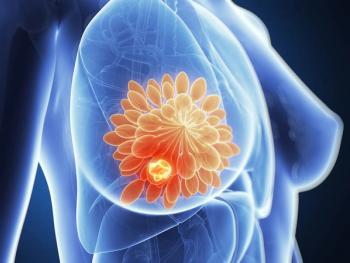
Yancey Warren, Jr, MD, MAT, and colleagues investigate the use of integrative oncology services among young women with breast cancer.
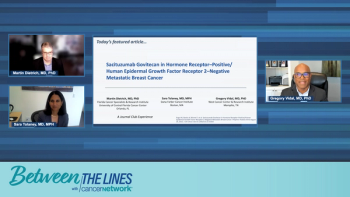
A commentary on key takeaways from TROPiCS-02, remaining questions and unmet needs in the field, and the clinical implications of using SG and other Trop-2–directed ADCs in patients with HR+/HER2- mBC.

Drs Dietrich, Tolaney, and Vidal comment on PFS subgroup analyses, response rates, and common adverse events (AEs) observed in the TROPiCS-02 trial.






